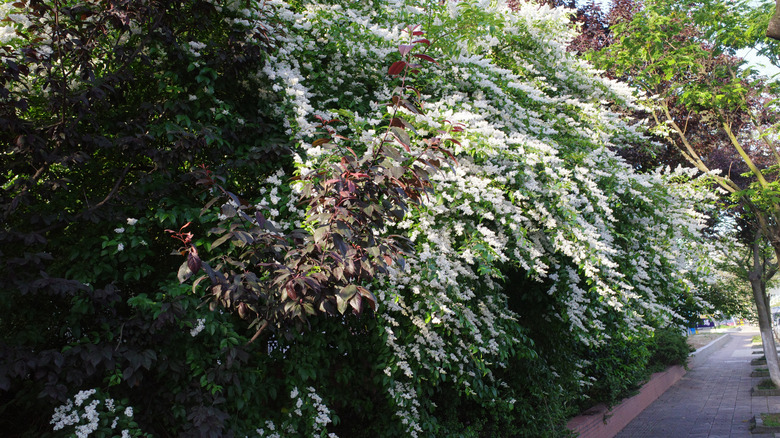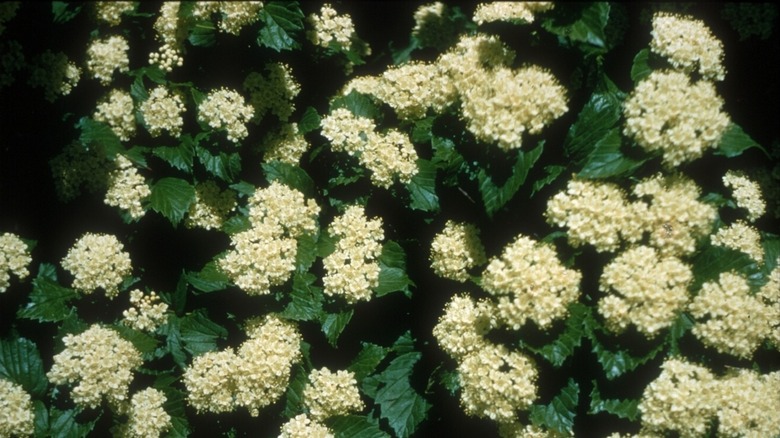The Pollinator-Friendly Alternative To Invasive Chinese Privet
Many plants that have been introduced to the American landscape have become popular, and then invasive, over the years. That includes Chinese privet (Ligustrum sinense), which spreads quickly through seeds, root suckers, and fruits spread by birds. There is a list of invasive plants you should never grow, and like many of those, Chinese privet thrives in different soil types and disturbed areas. It has quickly become a problem plant that pushes out native species, especially in the southern United States. While battling the Chinese privet that has already escaped gardens is an ongoing effort, there are native alternatives for gardeners to use instead of the once-popular Chinese privet that can provide a similar look.
Limerock arrowwood (Viburnum bracteatum) is found in woodlands throughout Georgia, Alabama, and Tennessee, though it is becoming more and more rare due to mining of limestone in its native areas. In general, native plants are perfect for bringing birds to your yard. By planting this native shrub in your yard, you will not only be giving a native plant species a much-needed boost, but it will attract bees, butterflies, and songbirds which depend on the flowers and fruit. It can be used to create shrubs and hedges, as part of a pollinator garden, as a specimen plant, or in almost any landscape, but can sometimes be hard to come by.
Growing limerock arrowwood
If you want to plant limerock arrowwood in your yard, you will need soil with average to medium moisture. It also prefers full sun or part shade and can tolerate a wide range of soil types, but if you happen to have loam, limerock arrowwood will be especially happy. Once established, this plant is drought-tolerant, but it won't like wet conditions, so be sure you have a well-drained spot for it to thrive. It is hardy in USDA Zones 6 to 8.
Limerock arrowwood can grow up to 6 to 10 feet tall and just as wide, so you will need to give it enough room to grow. Flowers appear May through June. Be prepared, especially if planting an entire hedge of these plants, as some people find the flowers have an unpleasant scent. Because of this, you may want to keep these at a distance from your patio or any other areas where you spend a lot of time during the spring bloom.
There are many native species of viburnum, so if this one isn't right for your area or conditions, don't give up. If you have caught the native shrub bug, consider planting this winter-blooming viburnum to provide nectar for hummingbirds during a dreary time of year. You will never regret planting low-maintenance natives in your garden, as they provide a wide variety of benefits.

